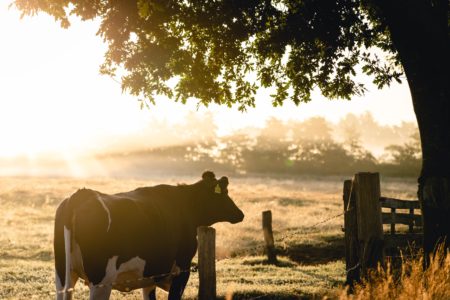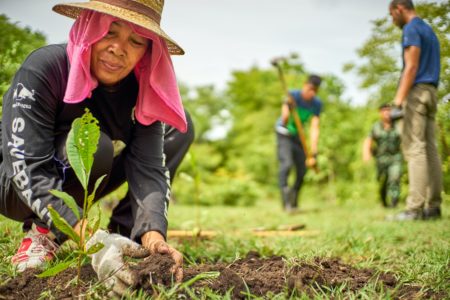New Regenerative Organic Certification Raises Standards for Agriculture

Over the past 50 years, agricultural productivity around the world has more than doubled to meet the food security needs of a growing population. While robust agricultural practices have increased food output, they have also increased the level of detrimental effects that farming can have on the environment.
Regulators, advocates, and industry leaders have worked together to improve agricultural technology and standards to create greener, more sustainable farming practices. In fact, studies show that between 1980 and 2015, greenhouse gas emissions have decreased by 31%, irrigation water usage has declined 46%, and soil erosion significantly decreased by 58%.
However, there is still a long way to go. The global agricultural sector still accounts for roughly 20% of the world’s total greenhouse gasses. To create an even brighter future for sustainable agriculture, companies should strive to meet the requirements of the newly introduced Regenerative Organic Certification (ROC) – what is sure to become the gold standard in organic food production.
What is Regenerative Organic Farming?
Regeneration organic farming is the pursuit of creating a restorative, sustainable agricultural system that operates in better harmony with the ecosystem, wildlife and communities of farmworkers. The goal of regenerative organic farming is to reverse the harmful effects of poisonous chemicals, habitat destruction, and exploitation. Instead, a regenerative approach at agriculture seeks to empower communities to create a positive impact on the planet.
What is the Regenerative Organic Certification?
Regenerative Organic Certified is a new certification for food, fiber, and personal care ingredients that revolutionizes the standards for these products and their production processes. Introduced by the Regenerative Organic Alliance (ROA), the certification is meant to help farmers and corporations cut away practices that damage the environment, replacing them with better farming for a better future.
The Regenerative Organic Certification has three main pillars:
Soil Health
The ROC encourages companies to adopt agricultural practices that protect soil quality, preventing degradation. The goal of the certification’s soil health standards is to increase soil organic matter, decrease the use of synthetic chemicals, and promote biodiversity.

Animal Welfare
The ROA is on a mission to ensure humane practices in the handling of animals. To maintain the certification, farming companies must comply with the ROA’s requirements that animals are free of any distress, unhealthy conditions, or cruel treatment.

Social Fairness
Now more than ever, fairness, equality, and ethical treatment of all people is top of mind for many. The social fairness pillar of the ROC establishes the highest standard of fair treatment for farmworkers, including living wages and good working conditions, among other things. The ROA’s goal is to raise the standards of labor practices around the world.

Who is Practicing Regenerative Organic Farming?
The Regenerative Organic Alliance rolled out the certification with a pilot program, where companies tested their ability to meet the standards of soil health, animal welfare and social fairness in order to be regenerative organic certified. The pilot program participants included Alexandre Family Farm, Guayakí Herba Mate, Maple Hill Creamery and Patagonia, just to name a few.
According to Alexandre Family Farm, their commitment to regenerative practices and environmental stewardship has enabled them to increase year-round biodiversity of their pastures, which helps ensure their cows are 100% grassfed. Regenerative farming has also helped their farm sequester carbon through planned grazing. Based on research by the Rodale Institute, if current farmland made the switch to regenerative organic practices, 100% of annual global CO2 emissions could be sequestered in the soil.
The new requirements under the Regenerative Organic Certification will shape agriculture for the better, raising the standards for sustainability and social good. The certification is rooted in long-term solutions for the environment that will lead us towards a hopeful future for Planet Home.


Leave a Reply